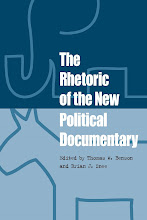

Recount is showing this month on HBO. The film is a docudrama about the Florida election crisis of November and December 2000, which was ended when a Republican majority on the Supreme Court stopped a recount of the Florida votes and awarded the election to George W. Bush.
In the New Yorker, Hendrik Herzberg comments that Recount's "over-all factual accuracy has been attested to by close observers of the events it portrays. It reminds us of some essential truths about the election and its aborted recount: that more Floridians went to their polling places to vote for Al Gore than for George W. Bush; that a full and fair count would have confirmed the voters’ preference; that the White House was awarded to Bush, the half-million-vote loser across the nation, by a 5-4 Supreme Court diktat. The injustice of Bush v. Gore was obvious at the time; its sequel has proved it to be a tragedy."
Hendrik Herzberg, "Memory Lapse," The New Yorker, 2 June 2008.







